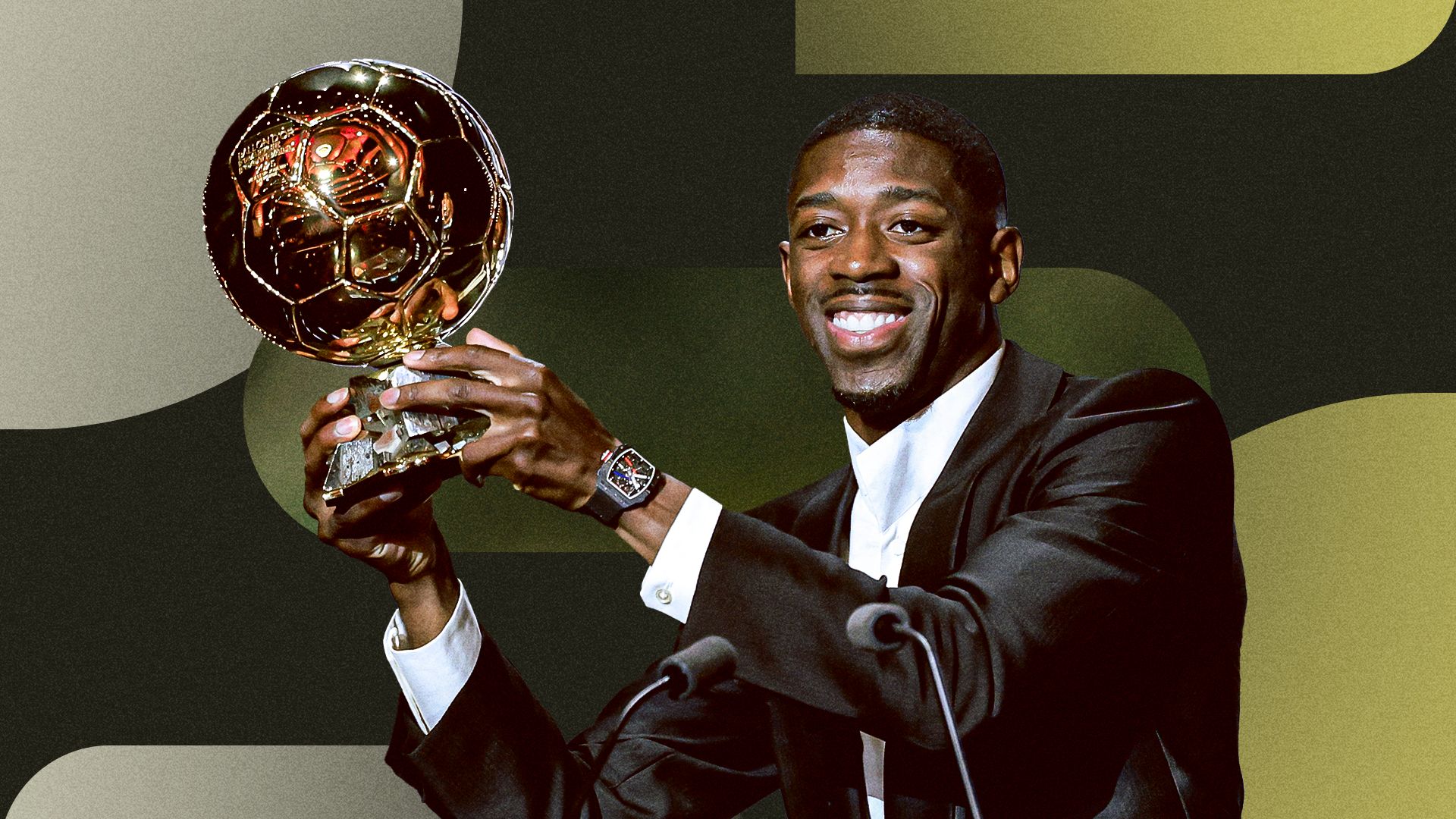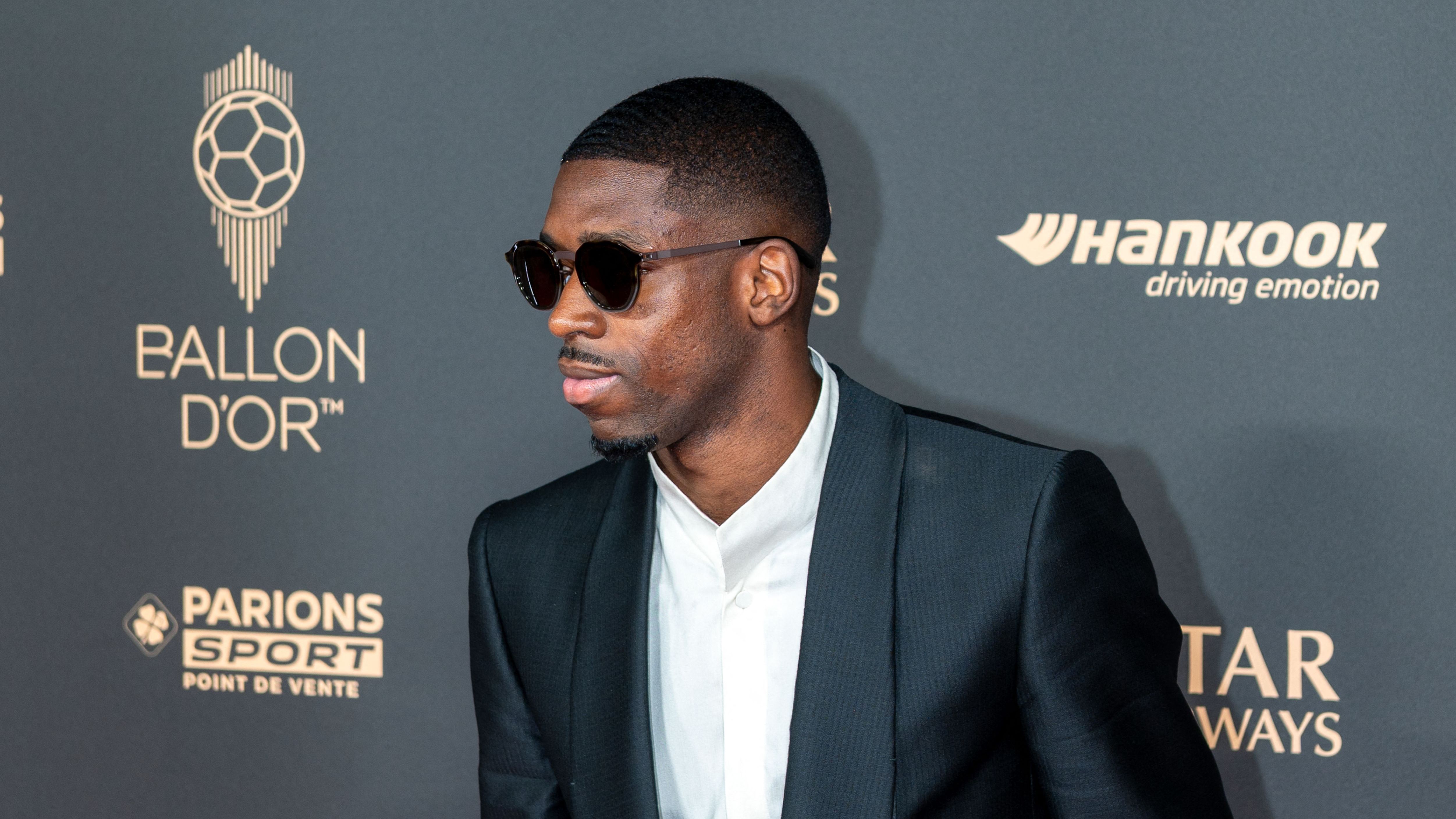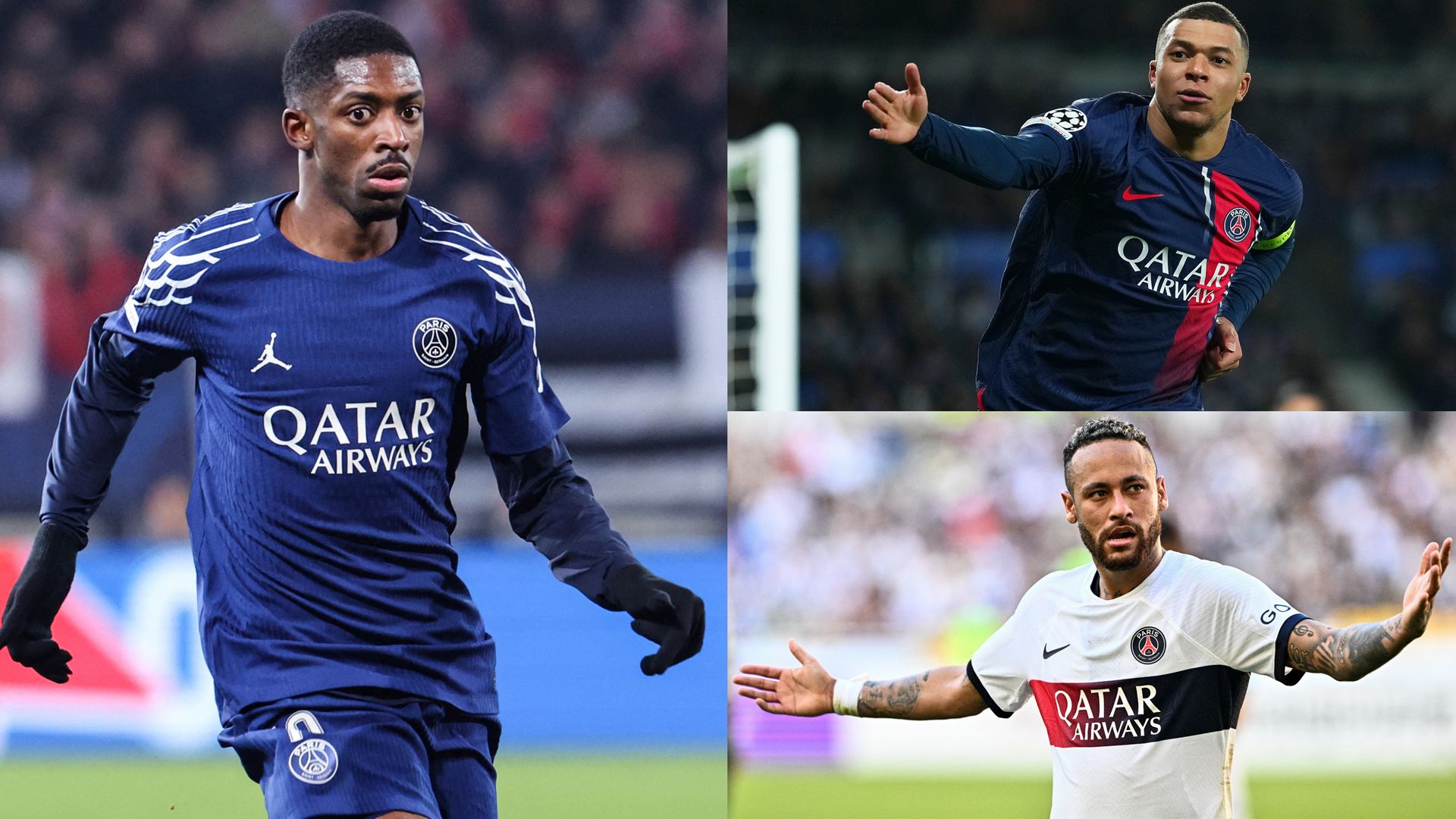Dembele’s Ballon d’Or Glory Fuels Intense Salary Showdown at PSG
Ousmane Dembele, fresh from his triumphant 2025 Ballon d’Or victory, is pushing for a substantial salary adjustment that aligns with his exceptional on-field achievements. As the Paris Saint-Germain standout, his team has initiated discussions with club officials, claiming his existing €18m (£15m/$19m) yearly earnings fail to capture his elite status. With his agreement extending to 2028, he stays composed yet insistent on receiving the acknowledgment he deserves for this career milestone.
Dembele Seeks Contract Adjustments Post Ballon d’Or Triumph
Similar to his previous deals at Borussia Dortmund and Barcelona, Dembele’s arrangement with PSG reportedly features a provision for enhanced compensation upon claiming the Ballon d’Or. Although PSG officials refute the existence of such a term, reports from L’Equipe confirm its inclusion, with Dembele’s advisors now urging the club to fulfill it. They assert that his standout individual accomplishments, including key contributions to the Champions League victory, warrant elevated remuneration. In contrast, PSG approaches these conversations with prudence, expressing willingness to discuss but firmly rejecting the extravagant spending patterns of earlier times.
PSG’s Cautious Financial Strategy in the Wake of Past Errors
Within the upper levels of PSG’s organization, there’s a strong commitment to avoid the financial pitfalls associated with the era of Neymar, Kylian Mbappe, and Lionel Messi. Led by president Nasser Al-Khelaifi and sporting director Luis Campos, the club has adopted a more conservative economic framework, prioritizing long-term stability and squad harmony. Even with improved financial standings following a profitable period, options for investment are restricted, especially given the sharp decline in broadcasting revenue, as noted by L’Equipe. Bound by financial fair play regulations, PSG is determined to steer clear of previous excesses. They acknowledge that Dembele’s pay doesn’t match his elevated profile, yet they’re resolute about not overspending, influenced heavily by their ongoing fiscal responsibilities.
Salary Comparisons and Potential Internal Impacts
Earning €18m annually positions Dembele as PSG’s top-paid player, yet this amount seems modest when stacked against Neymar’s €30m or the immense €70m that Mbappe previously commanded. Dembele isn’t demanding those levels, but he seeks terms that honor his reliability, influence, and role as a team leader. Nevertheless, PSG worries that boosting his compensation might trigger unrest among the squad, potentially reviving tensions from the club’s history of unchecked expenditures.
Ongoing Talks and Dembele’s Role in PSG’s Future
Discussions between the parties continue amicably, with both Dembele and PSG aiming for a resolution ahead of the upcoming season. Since transferring from Barcelona in 2023, the 28-year-old has delivered 43 goals and 32 assists across 99 appearances, making him indispensable to manager Luis Enrique’s strategy. Dembele is eager to remain with the team, but these negotiations could shape PSG’s evolving approach, emphasizing a blend of competitive drive and prudent management. The next few weeks will determine if Paris chooses to compensate their Ballon d’Or recipient or adhere to their core principles.
Contributed by Patrick Tchanhoun.



The Background of Dembélé’s Salary Demand
Ousmane Dembélé, the French international and Paris Saint-Germain (PSG) winger, has recently made headlines by demanding a salary increase that aligns with the earnings of Ballon d’Or winners. This move comes as Dembélé seeks to solidify his position among the elite in football, especially after his high-profile transfer to PSG. For context, Dembélé’s career has been a rollercoaster of talent and injury setbacks since his early days at Borussia Dortmund and Barcelona, where he showcased his blistering speed and creative flair. Now at PSG, he’s pushing for a pay package that reflects his contributions on the pitch, drawing direct comparisons to superstars like Lionel Messi and Kylian Mbappé, who have previously commanded top-tier salaries.
This salary negotiation isn’t just about money-it’s tied to Dembélé’s aspirations for recognition. Ballon d’Or winners, often the pinnacle of individual achievement in football, typically earn salaries in the tens of millions annually, thanks to their global appeal and performance records. Dembélé’s demand highlights a growing trend in the sport where players leverage their skills and marketability to negotiate deals that match the best in the game.
Why Dembélé Feels Entitled to Ballon d’Or-Level Pay
At the core of Dembélé’s request is his belief that his on-field impact warrants compensation similar to past Ballon d’Or recipients. For instance, winners like Messi and Neymar have seen their salaries skyrocket due to their consistent excellence and commercial value. Dembélé, with his Olympic gold medal and World Cup win, argues that his potential and past performances justify a comparable salary structure. This isn’t uncommon in football, where players often use their achievements as leverage in contract talks.
To break it down, let’s look at some key factors:
- Performance Metrics: Dembélé’s stats, including goals, assists, and creative plays, position him as a key asset for PSG. In recent seasons, his contributions have been vital in high-stakes matches, making a strong case for a raise.
- Market Comparisons: Ballon d’Or winners like Mbappé have secured deals exceeding €70 million per year, factoring in bonuses and endorsements. Dembélé’s demand aims to close this gap, emphasizing how top players drive revenue through merchandise, sponsorships, and global fan engagement.
This situation also underscores the broader dynamics of football salaries, where clubs balance player demands with financial sustainability, especially in leagues like Ligue 1.
PSG’s Firm Stance in Contract Negotiations
PSG has taken a hard line in response to Dembélé’s demands, drawing from their experiences managing high-earning stars like Mbappé, Messi, and Neymar. The club, known for its ambitious project backed by Qatari investment, has learned valuable lessons from past dealings that have shaped their current approach. For example, when Mbappé’s contract was up for renewal, PSG faced similar pressures but ultimately secured his commitment with a massive deal, only to see him move on later.
In Dembélé’s case, PSG is prioritizing long-term stability over immediate concessions. Club officials have reportedly cited the financial strains from previous superstar contracts, emphasizing the need for fiscal responsibility amid evolving UEFA financial fair play regulations. This stance reflects a strategic shift, focusing on building a sustainable squad rather than over-relying on a few marquee names.
Case Studies: Lessons from Mbappé, Messi, and Neymar
Let’s dive into real-world examples from PSG’s history to understand their perspective. These case studies illustrate how the club has navigated salary demands and their outcomes.
- Kylian Mbappé’s Saga: Mbappé’s negotiations involved demands for wages comparable to the world’s best, leading to a record-breaking contract. However, PSG’s experience showed that such deals can create internal imbalances, as seen in team dynamics and eventual transfer speculation. This has made the club more cautious with Dembélé.
- Lionel Messi’s Tenure: When Messi joined PSG, his salary demands were met with enthusiasm, given his Ballon d’Or pedigree. Yet, the club later reflected on the challenges, including high payroll costs that limited investments elsewhere. Messi’s short stint highlighted the risks of short-term gains versus long-term squad building.
- Neymar’s High-Profile Deal: Neymar’s arrival at PSG was marked by one of the most expensive transfers in history, paired with elite-level pay. The aftermath involved injury issues and contract disputes, teaching PSG about the volatility of star-driven strategies.
From these case studies, it’s clear that while accommodating top earners can boost a club’s prestige, it often leads to complications like squad unrest or financial scrutiny. Dembélé’s situation could serve as another learning curve for PSG, potentially influencing future salary policies.
Benefits of Competitive Salaries in Football
Competitive salaries aren’t just about rewarding talent-they offer tangible benefits that enhance the sport as a whole. For players like Dembélé, higher pay can motivate peak performance, reduce transfer speculation, and foster loyalty, which is crucial in a high-turnover industry like football. Clubs benefit too, as top salaries attract global talent, increasing fan bases, TV deals, and sponsorship revenue.
On the flip side, these benefits must be balanced. For fans and the sport’s ecosystem, fair salary structures can promote competitive leagues, ensuring that mid-tier clubs aren’t left in the dust. In Dembélé’s context, a well-negotiated deal could elevate PSG’s attacking prowess, leading to more exciting matches and better results in competitions like the UEFA Champions League.
Practical Tips for Handling Salary Negotiations
If you’re a football enthusiast, agent, or even a club executive, here are some practical tips drawn from ongoing trends in player contracts:
- Use Data-Driven Arguments: Players should back demands with stats and market comparisons, like referencing Ballon d’Or winners’ earnings.
- Focus on Long-Term Value: Clubs can negotiate performance-based bonuses instead of straight raises, as seen in Mbappé’s deals, to manage risks.
- Seek Third-Party Mediation: Involving agents or FIFA experts can help bridge gaps, drawing from Neymar’s negotiations.
- Prioritize Non-Financial Perks: Things like image rights or charity involvement, as with Messi, can sweeten deals without inflating base salaries.
These tips highlight how effective communication and strategic planning can lead to win-win outcomes in football’s high-stakes world.
First-Hand Experiences in Football Transfer Markets
From a broader perspective, first-hand experiences in the transfer market reveal the intensity of these negotiations. Many insiders share stories of how demands like Dembélé’s can pivot a player’s career-sometimes resulting in moves to rival clubs if unmet. For instance, similar situations with players at Barcelona have shown that standing firm, as PSG is doing, can either retain talent or open doors for fresh blood. This real-world insight emphasizes the human element in football, where personal ambitions intersect with club strategies, ultimately shaping the game’s narrative.
By understanding these dynamics, readers can appreciate the complexities behind the scenes, making Dembélé’s story more than just headlines-it’s a glimpse into the evolving landscape of professional football.









